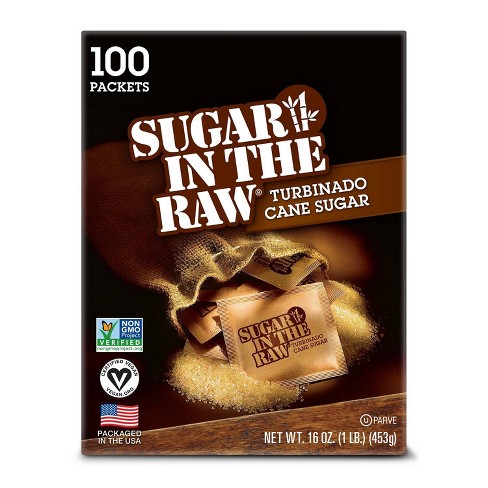Advanced Cane Sugar Processing: Enhancing Performance and Sustainability
Advanced Cane Sugar Processing: Enhancing Performance and Sustainability
Blog Article
A Thorough Summary of the Health And Wellness and Economic Effects of Cane Sugar Handling on Regional Communities
Walking stick sugar handling plays a crucial function fit the financial landscape of local communities, using job opportunity and promoting supplementary sectors. However, the health ramifications connected with high sugar usage can not be overlooked, as they add to rising rates of weight problems and diabetes. This nuanced vibrant invites a vital evaluation of just how areas can enhance economic gains while addressing the pushing health challenges they encounter. The expedition of lasting practices and academic initiatives may just hold the key to fixing up these clashing rate of interests. What strategies might communities carry out to attain this equilibrium?
Economic Benefits of Walking Cane Sugar Handling
Walking stick sugar processing uses significant economic advantages that prolong beyond the instant farming industry. The cultivation and processing of sugarcane produce many task possibilities, from farming to production and distribution. This work generation not only supports neighborhood economic situations yet also cultivates area development by supplying stable revenue sources for family members.
Additionally, the sugar industry promotes ancillary services, including transportation, devices supply, and packaging services (Cane Sugar Processing). As these sectors grow, they add to a more robust economic framework, boosting total neighborhood strength. The export potential of processed cane sugar better enhances financial benefits, placing regions as competitive gamers in international markets
Investment in modern-day processing facilities can bring about raised efficiency and effectiveness, consequently decreasing waste and enhancing resource use. This shift not only profits the local economic climate yet also supports sustainability efforts by decreasing environmental effects.
In addition, the revenue generated from walking cane sugar handling can be reinvested in neighborhood framework, education and learning, and healthcare, promoting holistic community growth. On the whole, the financial advantages of walking stick sugar processing are multifaceted, supplying a foundation for enduring prosperity in agricultural areas.
Wellness Risks Connected With Sugar Usage
Extreme sugar consumption postures substantial health and wellness dangers that warrant significant interest. High consumption of included sugars, particularly from refined beverages and foods, has been linked to various health complications.
Furthermore, high sugar usage is related to heart disease. Raised blood sugar degrees can cause insulin resistance, a precursor to different heart-related issues. Furthermore, sugar can have detrimental results on oral health and wellness, causing tooth cavities and gum condition, as germs in the mouth grow on sugar, creating acids that erode tooth enamel.
Moreover, arising research recommends a potential link between high sugar intake and mental health and wellness problems, such as depression and stress and anxiety. As areas come to grips with these health and wellness threats, it becomes crucial to promote understanding and urge much healthier nutritional options. Attending to sugar consumption is vital not only for individual health yet also for the general wellness of regional communities, stressing the demand for thorough public health techniques.
Ecological Impacts of Sugar Production
Often ignored in conversations concerning sugar's implications is the significant environmental impact of sugar production. The cultivation of sugarcane commonly demands considerable land use, causing logging, loss of biodiversity, and interruption of regional ecological communities. The conversion of woodlands and marshes into sugar ranches can cause habitat damage, harmful countless varieties and changing ecological balance.
In addition, sugar manufacturing is resource-intensive, consuming considerable amounts of water for watering. This can lead to deficiency of neighborhood water resources, negatively influencing both agricultural practices and neighborhood access to tidy water. Furthermore, using chemical plant foods and pesticides in sugarcane farming can contribute to dirt deterioration and water contamination, as runoff from these chemicals gets in close-by rivers and lakes, influencing water life and human health and wellness.
The ecological footprint prolongs to the handling stage, where energy intake and waste generation further worsen environmental concerns. Air contamination from melting sugarcane fields, together with greenhouse gas emissions, add to climate adjustment. Thus, the ecological implications her latest blog of sugar manufacturing warrant major factor to consider, prompting stakeholders to adopt even more lasting methods to mitigate these negative results on regional environments and neighborhoods.
Work Creation and Neighborhood Advancement
The ecological challenges presented by sugar manufacturing are typically counterbalanced by its capacity for financial benefits, particularly in job production and neighborhood growth. The walking stick sugar industry works as a significant resource of work in many backwoods, supplying tasks throughout numerous ability degrees, from farming labor to processing and get more circulation roles. This work not only sustains private family members but also adds to the general financial vigor of neighborhood areas.
Additionally, the facility of sugar handling centers stimulates supplementary organizations, such as transport solutions, tools supply, and upkeep suppliers. As these businesses thrive, they create additional jobs and boost neighborhood economic situations. The income generated from the sugar sector additionally leads to enhanced tax earnings, which can be reinvested right into social work such as education, healthcare, and infrastructure growth.
In addition, the sugar market frequently involves in neighborhood development campaigns, such as supporting local schools and health and wellness programs, thereby improving the lifestyle for homeowners. By promoting solid community ties and advertising economic development, the walking stick sugar handling field plays a crucial role in uplifting regional populaces, making it a necessary element of lasting development methods in sugar-producing areas.
Harmonizing Health and Economic Development
In navigating the complexities of walking cane sugar processing, a crucial difficulty hinges on balancing wellness considerations with economic development. The sugar sector considerably adds to neighborhood economies by producing work, stimulating associated industries, and raising tax incomes. Nevertheless, the health and wellness implications associated with too much sugar usage can cause persistent diseases such as obesity, diabetes, and cardio concerns, which can burden public health and wellness systems and lessen workforce productivity.

Moreover, regulatory frameworks can play a crucial role in assisting industry practices towards even more lasting and health-conscious methods. By promoting partnership between federal government bodies, wellness companies, and the sugar industry, neighborhoods can navigate the dichotomy of health and wellness and financial development, guaranteeing that the benefits of walking stick sugar processing are equitably shared while prioritizing public health and wellness.
Final Thought
Finally, the handling of cane sugar provides both considerable economic advantages and remarkable health risks for local communities. While it cultivates task creation and promotes regional development, the associated health and wellness worries, especially regarding obesity and diabetic issues, necessitate a cautious balancing act. By promoting responsible consumption and investing in community education and sustainable techniques, it is feasible to take full advantage of economic benefits while minimizing damaging health and wellness results, thus making certain a healthier future for regional populations.
Furthermore, sugar can have harmful results on oral health, resulting in dental caries and periodontal disease, as microorganisms in the mouth flourish on sugar, producing acids that erode tooth enamel.
Addressing sugar intake is critical not only for private wellness yet likewise for the general health of regional areas, emphasizing the demand for detailed public health techniques.
Frequently neglected in conversations concerning sugar's implications is the substantial environmental influence of sugar manufacturing. The wellness implications connected with excessive sugar intake can lead to chronic diseases such as weight problems, diabetic issues, and cardiovascular concerns, which can worry public health and wellness systems and lessen labor force productivity.

Report this page